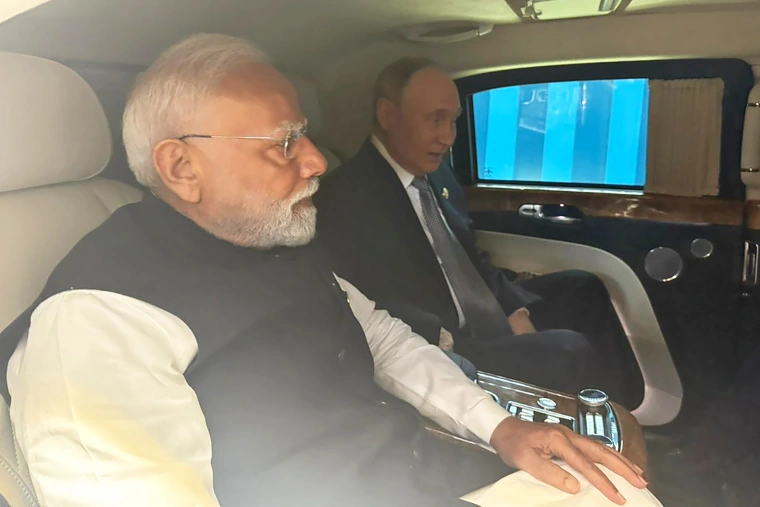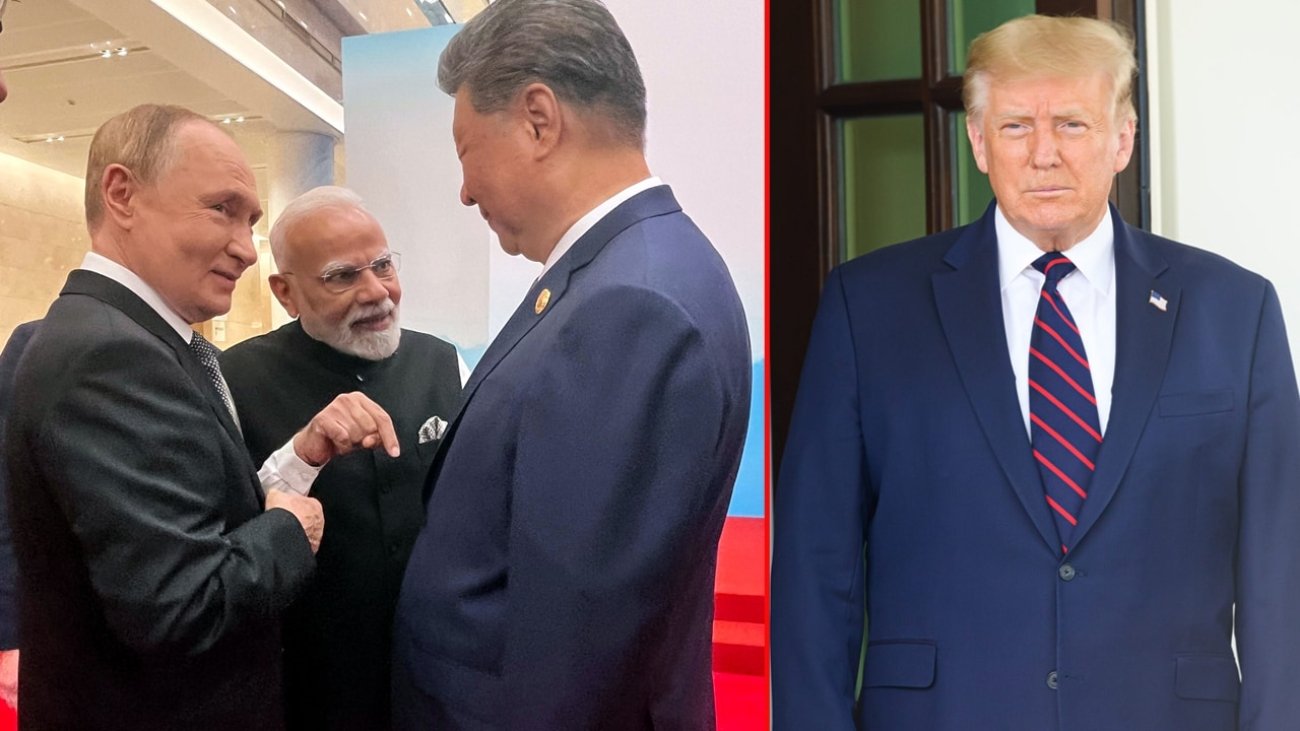The SCO Summit 2025 was more than a routine diplomatic gathering; it became a defining moment in global politics. Indian Prime Minister Narendra Modi, Russian President Vladimir Putin, and Chinese President Xi Jinping stood together to project a shared vision of a multipolar world order. For India, the summit carried special significance. Not only did it reaffirm New Delhi’s strategic autonomy, but Modi also held a crucial bilateral meeting with Putin, strengthening India–Russia ties at a time when U.S. pressure and bullying tactics loom large on the global stage.
SCO Summit: A Platform for a Multipolar Future
Founded in 2001, the Shanghai Cooperation Organization (SCO) has grown into one of the most important Eurasian platforms for security, trade, and cooperation. With members representing nearly half of humanity and a significant share of global GDP, the SCO is increasingly seen as a counterweight to Western alliances such as NATO.
For India, which joined the SCO in 2017, the forum provides an opportunity to deepen engagement with Eurasia while balancing ties with both the United States and traditional allies like Russia. The summit highlighted India’s determination to resist external pressure and actively participate in shaping a new multipolar order.
Modi’s Message: Strategic Autonomy and Multipolarity
Prime Minister Modi’s speech at the SCO emphasized India’s independent foreign policy and commitment to a balanced global order. He underlined that sovereignty, equality, and non-interference must guide international relations — a direct contrast to U.S. unilateralism.
India has often been caught in the crossfire of American pressure tactics — whether it is being urged to reduce oil imports from Russia, criticized for purchasing Russian defense equipment, or nudged into aligning with Western sanctions. By firmly standing alongside Putin and Xi, Modi sent a message: India will decide its path based on national interest, not external dictates.
Modi–Putin Meeting: Strengthening an Old Friendship

One of the highlights of the SCO Summit was the bilateral meeting between Modi and Putin. Despite global criticism of Russia’s policies, India has maintained its time-tested friendship with Moscow, rooted in defense, energy, and strategic cooperation.
During the meeting, Modi and Putin reportedly discussed:
Energy security: India continues to import Russian oil despite U.S. disapproval, ensuring affordable energy supplies for its citizens.
Defense cooperation: Russia remains a key partner in India’s military modernization.
Regional stability: The two leaders discussed Afghanistan, Central Asia, and balancing security in Eurasia.
For India, this meeting reinforced its stance that strategic autonomy matters more than bowing to Western bullying. It also showed that the India–Russia relationship remains strong, even as New Delhi deepens ties with the U.S. and other Western powers.
Xi and Putin’s Push Against U.S. Bullying
While Modi maintained his balancing tone, Putin and Xi were more direct in their criticism of U.S. policies. Both leaders spoke about resisting sanctions, trade wars, and unilateral interference.
Putin emphasized Russia’s resilience against sanctions and called for stronger Eurasian partnerships.
Xi underlined the need for new financial systems, trade routes, and technology frameworks that are free from U.S. dominance.
Their joint stance made it clear: U.S. bullying is no longer acceptable, and nations now have viable alternatives through platforms like the SCO and BRICS.
U.S. Pressure and India’s Firm Stand
India, too, has faced its share of U.S. pressure:
Washington has warned New Delhi about importing discounted Russian oil.
India’s defense deals with Russia have been questioned under CAATSA (Countering America’s Adversaries Through Sanctions Act).
On multiple occasions, India has been pushed to align with Western positions on Ukraine and China.
Yet, India has consistently held its ground. By refusing to bend under pressure, Modi has shown that India is neither in the U.S. camp nor the Russia–China camp — but in its own camp, guided by its interests.
Multipolar World Order: India’s Opportunity
The vision of a multipolar world is one where global power is shared, not dictated by one country. For India, this shift brings both opportunities and responsibilities:
Economic opportunities: Closer trade with Russia, Central Asia, and China can reduce dependence on Western markets.
Strategic leverage: India can play the role of a balancing power between East and West.
Leadership role: As the world’s largest democracy and a growing economy, India is uniquely positioned to shape multipolarity in its own image.
Modi’s presence at the SCO Summit, especially alongside Putin and Xi, positioned India as a key architect of this new order.
Conclusion: A Clear Message to Washington
The SCO Summit 2025 sent a clear geopolitical message: the age of U.S. unilateral dominance is fading. Modi, Putin, and Xi — despite their differences — stood united in calling for a multipolar world order based on equality and sovereignty.
For India, the summit was a chance to reaffirm its independent foreign policy and showcase its refusal to bow to external bullying. The Modi–Putin meeting in particular highlighted India’s loyalty to long-standing partnerships, even under U.S. pressure.
The message to Washington is loud and clear: India will not be bullied. Instead, it will continue to act as an independent, sovereign power shaping the emerging multipolar world.
Subscribe to – What India Wants

Leave A Comment